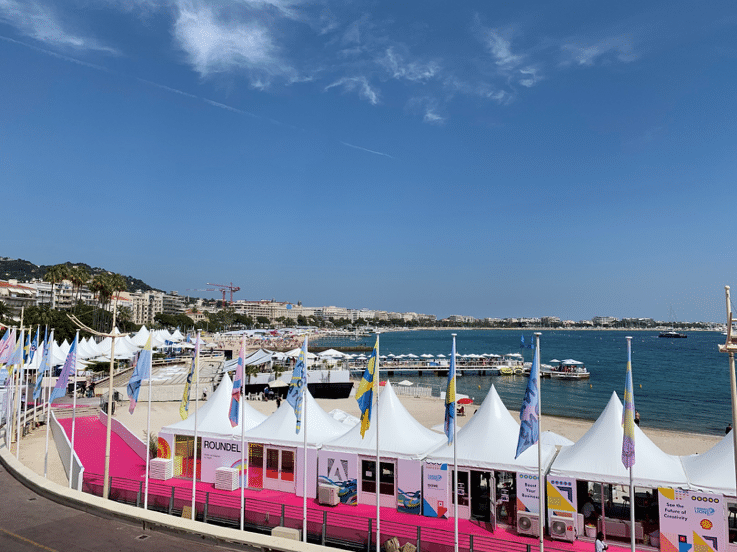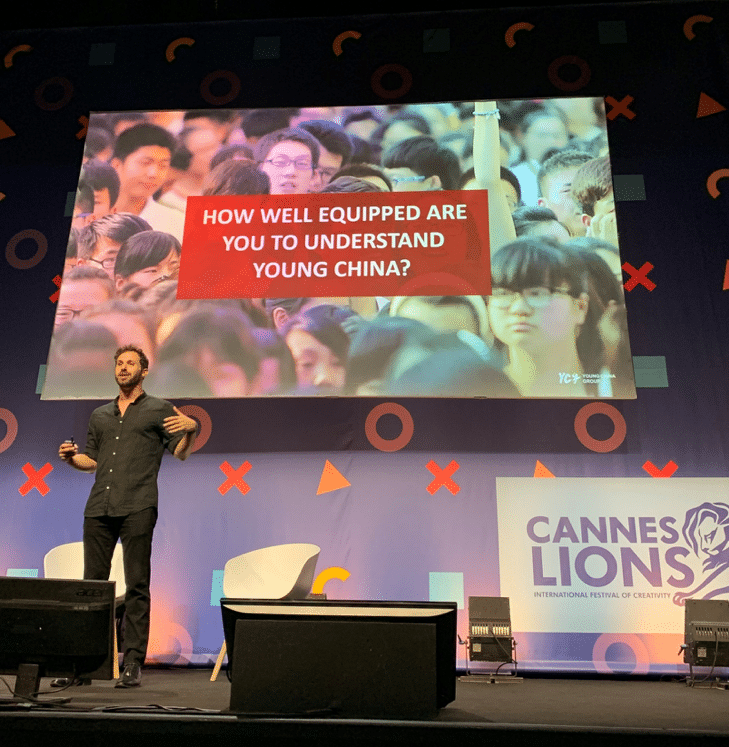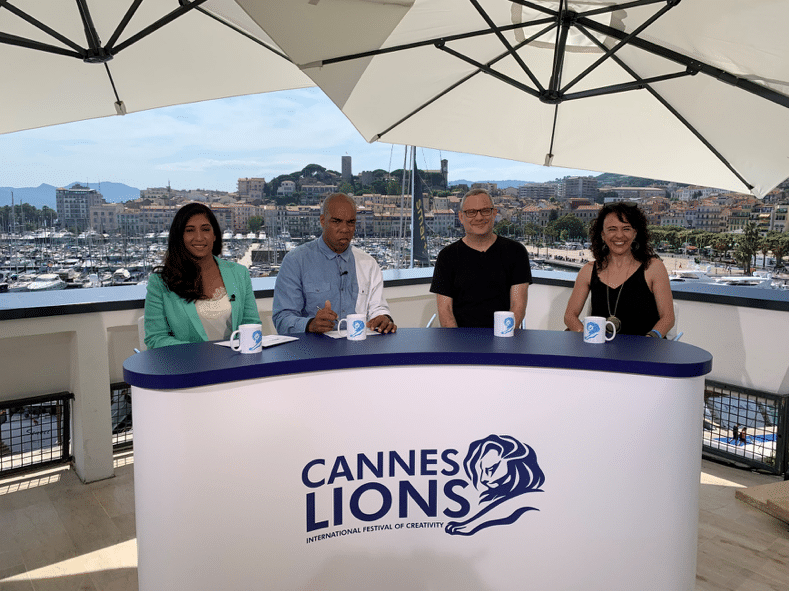Jack Blog
July 24th, 2019

2019 was my first year at Cannes. So while most people had a look of “we got this” on their faces, I must have been quite the opposite as I was stopped regularly by smiley faces in official T-shirts asking me if I needed help. Not exactly the look I was going for in a place where people behave like peacocks showing off their feathers. But nonetheless, I took away a lot more than I expected.
As much as I’d like to share my psychosocial observations from Cannes, what I really want to share is what moved me creatively at the festival, including where I filled my creative tank, and the trends I noticed throughout the five days in France. So here we go!
If I had to identify a central theme at Cannes, it would be “humanity”. I was moved to see the number of topics that focused on social issues and how brands should respond to them. There was a laser focus on sexuality: both gender and sexual equality, the importance of addressing the LGBTQIA community, and how we are moving toward a world where sexuality will no longer be binary.
Many topics addressed how brands are responsible within the broader social context, and the importance of authentic communication above lip service. Because the truth is, we are living in a world where consumers demand that brands support equality in all forms – gender, race, religion, sexuality. And consumers are becoming increasingly astute at sniffing out brands that just jump on social bandwagons, and slap rainbows on things without actually following through by giving back to those causes and communities through meaningful action. Millennials especially will not hesitate to exclude a brand because of its values. Marc Pritchard, Chief Brand Officer at P&G, was joined by musician John Legend and spoke about Reimagining Creativity through Love and Humanity. They addressed their collaboration and how P&G is aiming to inject their ad campaigns with more positivity and authenticity through various collaborations.
The critical role of feelings
Closely connected to the social issues, was a focus on the role our emotions play in making decisions and how as marketers, we have the opportunity to tap into this to create an exciting and diverse range of experiences that really matter to consumers. The head of design at Google gave a fascinating talk on Design Thinking vs. Design Feeling, and how it is incumbent on us as creatives to shift our lens and focus on how things feel. By asking ourselves questions like, “What is the feeling driving the experiences we create?”
Greater China is of course a very different landscape for brands when it comes to social issues, and to my surprise, the number of China-relevant sessions on the agenda was minimal. Given the size of the market and how almost every brand and agency wants a piece of it, I was surprised there wasn’t more available. There was one session on how Western brands should market to Chinese consumers, highlighting the importance of understanding “young China” and diving into what Millennials and Gen Z’ers are looking for. The key takeaway? They’re no longer looking for security and status. They want experience and fulfillment.

Technology was not a focus by any stretch of imagination. I didn’t see any talks on the program around virtual reality (VR), augmented reality (AR) or tech innovations, etc. Artificial intelligence (AI) did make an appearance and there was a two-part documentary screening. But this lack of focus on tech did strike me as interesting. It’s as though we’ve accepted that this is now not just a part of our reality, but it IS our reality. We no longer need to shine a light on it – it just blends into all aspects of marketing. Tech is an area where Greater China did make an appearance, though. Tencent delivered an extremely well-rehearsed, well-polished presentation on the Roadmap of Tencent’s “Tech for Good”. This talk had such a strong leaning into “propaganda speak” and sounded more like a Utopian Manifesto where we all work for the greater good. The talk laid out the ancient way of achieving good: it starts on the individual level, moves up to the family, to the community, to the country and then finally, the world. And whereas some hard questions are being addressed elsewhere, and some uncomfortable realities are brought to the fore, this talk felt like it existed in a bubble of idealism. As an internal optimist, it left me amused.
I also had the privilege of being invited to be a guest on Cannes Lions TV for a post-seminar discussion following Jeff Goldblum’s talk on “The Future of Entertainment” where I was joined by Gary Cohen, the Director of Brand Partnerships at ATC. We explored whether entertainment could be the solution to pressing issues such as racism, bullying and climate change, among other topics. I was fortunate enough to give a perspective from Greater China which, like all aspects of our industry, differs vastly to that of Europe and North America.

Walking away personally fulfilled
I got so much out of Cannes Lions 2019 on a personal level — especially since I fundamentally and wholly believe in the power of human emotions and how important they are in the stories we tell and how we communicate with our clients. This belief, which I carry in a quiet place (OK, not always quiet) in my heart, seemed to be frolicking on the world stage, generating standing ovations. This was so uplifting to see.
At the end of the day, humanity matters! Social justice matters, the environment matters, mental health matters. And every talk I attended addressed one or more of these topics in some way or another. At times, it’s easy to feel jaded in our industry. Especially after so many years. But now more than ever, I feel we have the power to work with our clients to create meaningful change — even if it is in small ways, it all adds up. In fact, we have a responsibility to do just that. While adding to their bottom line in the process.